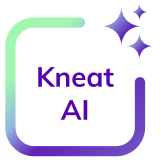In the ever-evolving landscape of pharmaceutical manufacturing, the introduction of Validation 4.0 marks a significant milestone. This concept, emerging from the broader framework of Pharma 4.0™, is reshaping validation processes by leveraging digital transformation strategies and aligning with the latest guidelines.
What Is Pharma 4.0?
Pharma 4.0 is an industry-wide initiative inspired by the Fourth Industrial Revolution, or Industry 4.0. The term Pharma 4.0 was introduced in 2017 by the International Society of Pharmaceutical Engineers (ISPE). The initiative aims to transform pharmaceutical manufacturing through the integration of advanced digital technologies. This digital transformation encompasses the Internet of Things (IoT), artificial intelligence (AI), big data analytics, and cloud computing, among others.
The goal is to enhance operational efficiency, product quality, and patient safety. Pharma 4.0 extends beyond mere technological upgrades, advocating for a holistic change in organizational culture, processes, and compliance models to fully harness digital advancements.
The Emergence of Validation 4.0
Validation 4.0 is a direct offspring of ISPE’s Pharma 4.0 ideology. It represents a shift from traditional validation methods to a more dynamic, data-driven approach. Traditional validation processes, often criticized for being overly conservative and paper-intensive, have struggled to keep pace with the rapid advancements in manufacturing technologies and regulatory expectations. Validation 4.0 seeks to address these challenges by integrating digital tools and methodologies, thereby ensuring more flexible, efficient, and reliable validation processes.
Four Core Principles of Validation 4.0
1. Digitalization: Embracing digital tools to automate and streamline validation tasks, reducing human error and increasing efficiency.
2. Data Integrity and Analytics: Leveraging data analytics for real-time validation and continuous process verification, ensuring product quality and compliance.
3. Agility: Implementing flexible validation strategies that can adapt to changes in technology, regulations, and market demands.
4. Collaboration: Enhancing communication and collaboration across departments and with regulatory bodies through digital platforms.
Digital Transformation in Pharma
Digital transformation is the cornerstone of Pharma 4.0 and, by extension, Validation 4.0. It involves the adoption of digital technologies to revolutionize every aspect of pharmaceutical manufacturing, from research and development (R&D) to supply chain management. In the context of validation, digital transformation enables leveraging data and the integration of other technologies, such as Process Analytical Technologies (PAT), as well as the use of simulation models, digital twins, and AI algorithms, to help predict process outcomes, facilitating a more proactive approach to validation. This not only accelerates the validation process but also improves its accuracy and reliability.
GAMP 5 Guidelines and Validation 4.0
GAMP 5 guidelines play a pivotal role in shaping Validation 4.0. Developed by the International Society for Pharmaceutical Engineering (ISPE), GAMP 5 provides a risk-based approach to compliant GxP computerized systems. It outlines best practices for ensuring that digital tools and technologies are implemented in a manner that meets regulatory standards.
GAMP 5’s emphasis on scalability, flexibility, and risk management aligns perfectly with the objectives of Validation 4.0. It advocates for the use of scalable validation approaches that can accommodate the dynamic nature of digital technologies. Moreover, GAMP 5 encourages the adoption of a lifecycle approach to validation, which is in harmony with the continuous improvement ethos of Pharma 4.0.
Implementing Validation 4.0: Challenges and Opportunities
Despite its numerous benefits, the implementation of Validation 4.0 is not without challenges. These include the need for significant upfront investment in digital technologies and the requirement for skilled personnel capable of operating and maintaining these technologies. Additionally, regulatory bodies are still adapting to these new paradigms, which can lead to uncertainties in compliance requirements.
Validation 4.0: Enablers
“There are three key external enablers and trends for a new Pharma 4.0™ approach to validation:
- Regulatory encouragement to help the pharmaceutical manufacturing sector mature to a maximally efficient, agile, and flexible state, in which manufacturers reliably produce high-quality drugs without extensive regulatory oversight (21st-century GMP initiative).
- Advancement of health sciences knowledge to the molecular level, enabling the pharmaceutical industry to evolve from “discovering” medicines to “engineering” the next generation of differentiated, competitive medicines.
- Innovative technologies that are smarter and more adaptive in conjunction with software capabilities to handle large amounts of adaptive, self-optimizing data in near real time.”1
The opportunities Validation 4.0 presents are immense. It offers the potential for significant cost savings over time, improved operational efficiency, and enhanced product quality. Moreover, it provides a framework for pharmaceutical companies to remain competitive in a rapidly changing industry landscape.
Thoughts to the Future
Validation 4.0 is at the forefront of transforming pharmaceutical manufacturing. By embracing digital transformation and aligning with Pharma 4.0 and GAMP 5 guidelines, it offers a new paradigm for validation processes that are more efficient, flexible, and reliable.
While challenges exist, the potential benefits in terms of cost savings, operational efficiency, and product quality make it a worthwhile endeavor for the pharmaceutical industry. As we move forward, the continued evolution of Validation 4.0 will undoubtedly play a critical role in shaping the future of pharmaceutical manufacturing.
- Process Validation Challenges and Solutions: Gain a deep understanding of the significant challenges that process validation teams face today and how to overcome them.
- Key Trends and Innovations in Process Validation: Explore the rapid evolution of Process Validation 4.0, driven by technological advancements, regulatory changes, and a growing emphasis on sustainability.
- Best-in-Class Digitalization Methodology: Discover best practices when digitalizing process validation across an organization and integrating key technologies, including Process Analytical Technologies (PAT).
- Industry Perspective: Validation 4.0 – Shifting Paradigms. (2023, October 12). ISPE | International Society for Pharmaceutical Engineering. [https://ispe.org/pharmaceutical-engineering/november-december-2020/industry-perspective-validation-40-shifting]







